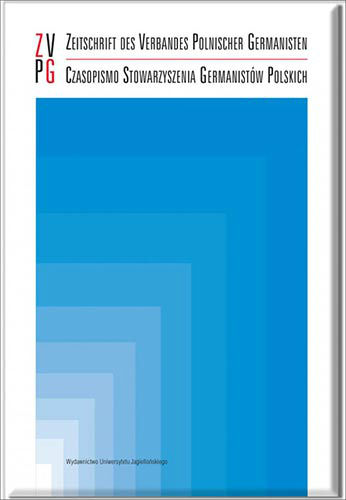"auleta" und es bleibt alles beim Neuen! Zur Konstitution der polnischen Fachneologismen im Bereich der altgriechischen Musik.
"auleta" and everything remains as new! On the constitution of the Polish specialist neologisms in the area of ancient Greek music.
Author(s): Grzegorz PawłowskiSubject(s): Philosophy, Language and Literature Studies, Theoretical Linguistics, Epistemology, Morphology, Semantics
Published by: Wydawnictwo Uniwersytetu Jagiellońskiego
Keywords: specialised neologism; prefix neo; epistemic; old greek music terms; meaning; interview
Summary/Abstract: Epistemic properties of a man constitute the base for change. So far little attention has been paid to those properties in semantics. Questions of epistemic factors, which influence the formation of specialised neologisms, have not been posed. The keynote of this article is the attempt to answer this question. To achieve this goal, I attempt to explain such expressions as ‚neo’, ‚epistemic’ and ‚specialised neologism’. Then I proceed with the presentation of the results of the analysis of an interview. The subject of the interview is the Polish neologism ‚auleta’, created by Maciej Kaziński during his work an the translation of John Landes’ Music in Ancient Greece and Rome.Epistemic properties of a man constitute the base for change. So far little attention has been paid to those properties in semantics. Questions of epistemic factors, which influence the formation of specialised neologisms, have not been posed. The keynote of this article is the attempt to answer this question. To achieve this goal, I attempt to explain such expressions as ‚neo’, ‚epistemic’ and ‚specialised neologism’. Then I proceed with the presentation of the results of the analysis of an interview. The subject of the interview is the Polish neologism ‚auleta’, created by Maciej Kaziński during his work an the translation of John Landes’ Music in Ancient Greece and Rome.
- Issue Year: 4/2015
- Issue No: 1
- Page Range: 45-63
- Page Count: 19
- Language: German

